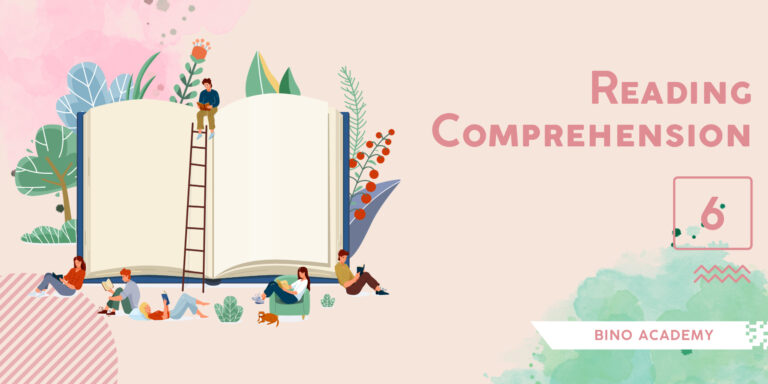Cấp độ: Intermediate
Audio:
Reading:
Marriage is an ancient religious and legal practice celebrated around the world. However, wedding customs vary from country to country.
The Wedding Dress: In many countries, it is customary for the bride to wear a white dress as a symbol of purity. The tradition of wearing a special white dress only for the wedding ceremony started around 150 years ago. Before that, most women could not afford to buy a dress that they would only wear once. Now, bridal dresses can be bought in a variety of styles. In some Asian countries and in the Middle East, colors of joy and happiness like red or orange other than white are worn by the bride or used as part of the wedding ceremony.
The Wedding Rings: In many cultures, couples exchange rings, usually made of gold or silver and worn on the third finger of the left or right hand, during the marriage ceremony. The circular shape of the ring is symbolic of the couple’s eternal union. In Brazil, it is traditional to have the rings engraved with the bride’s name on the groom’s ring, an vice versa.
Flowers: Flowers play an important role in most weddings. Roses are said to be the flowers of love, and because they usually bloom in June, this has become the most popular month for weddings in many countries. After the wedding ceremony, in many countries the bride throws her bouquet into a crowd of well-wishers – usually her single female friends. The person who catches this bouquet will be the next one to marry.
Gifts: In Chinese cultures, wedding guests give gifts of money to the newly-weds in small red envelopes. Money is also an appropriate gift at Korean and Japanese wedding. In many Western countries, for example in the U.K, wedding guests give the bride and groom household items that they may need for their new home. In Russia, rather than receiving gifts, the bride and groom provide gifts to their guests instead.
With the continued internationalization of the modern world, wedding customs that originated in one part of the world are crossing national boundaries and have been incorporated into marriage ceremonies in other countries.
500 Bài Luyện Đọc Hiểu – Đọc Điền Tiếng Anh by Trang Anh
NEW VOCABULARY:
Ancient (adj): /ˈeɪnʃənt/ – Cổ đại, cổ xưa
Religious (adj): /rɪˈlɪdʒəs/ – Thuộc về tôn giáo, liên quan đến tôn giáo
Practice (n): /ˈpræk.tɪs/ – Thực hành, sự thực hiện
Customary (adj): /ˈkʌs.təˌmɛri/ – Theo phong tục, theo lệ thường
Bride (n): /braɪd/ – Cô dâu
Purity (n): /ˈpjʊrɪti/ – Sự trong sáng, tính trong trắng
Bridal dresses (n): /ˈbraɪdl ˈdrɛsɪz/ – Những bộ váy cưới
Symbolic (adj): /sɪmˈbɒlɪk/ – Mang tính biểu tượng
Eternal union (n): /ɪˈtɜrnəl ˈjuːniən/ – Sự đoàn kết vĩnh cửu
Engraved (adj): /ɪnˈɡreɪvd/ – Được khắc, được điêu khắc
Vice versa (adv): /ˈvaɪs ˈvɜrsə/ – Ngược lại, nói ngược lại.
Bloom (n): /bluːm/ – Bông hoa, sự nở hoa
Bouquet (n): /buːˈkeɪ/ – Bó hoa cưới
Newlyweds (n): /ˈnuːliwɛdz/ – Cặp đôi mới cưới
Envelopes (n): /ˈɛnvəloʊps/ – Bao thư
Internationalization (n): /ˌɪntərˌnæʃənəlaɪˈzeɪʃən/ – Sự toàn cầu hóa
National boundaries (n): /ˈnæʃənl ˈbaʊndəriz/ – Biên giới quốc gia
Incorporated (adj): /ɪnˈkɔrpəˌreɪtɪd/ – Được hợp nhất, được tích hợp
QUESTIONS:
Question 1: Which of the following is the best title of the passage?
A. Wedding ceremonies B. Wedding customs
C. Wedding day D. Wedding history
Question 2: The tradition of wearing a special dress only on one’s wedding day is ____.
A. about 150 years ago B. over a century ago
C. less than 100 years ago D. less than 200 years ago
Question 3: In some cultures, the bride wears a white dress as a traditional symbol of ____.
A. modesty B. secrecy C. purity D. security
Question 4: In some Asian and Middle Eastern countries, which colour is NOT considered to be suitable for a wedding?
A. red B. orange C. white D. blue
Question 5: The phrase “eternal union” in paragraph 3 is closest in meaning to ____.
A. never-ending relationship B. lovely relationship
C. temporary relationship D. healthy relationship
Question 6: The word “this” in paragraph 4 refers to which of the following?
A. role B. love C. June D. rose
Question 7: According to the passage, in which country would the wedding guests give the bride and groom money as a present?
A. Brazil B. the U.K C. China D. Russia
Question 8: Which of the following information is TRUE according to the passage?
A. Nowadays, every bride can afford to buy a wedding dress to wear only once.
B. It is believed that any person who catches the bride’s bouquet will be the next to marry.
C. It is customary to write the groom’s name on the bride’s wedding ring.
D. Thanks to globalization, one country’s wedding customs may be added to other countries.


1. B
2.A
3.C
4.D
5. A
6.D
7.C
8.D
1D,2A,3C,4D,5A,6D,7C,8A
1A 2A 3 C 4C 5A 6D 7C 8B
.
1. Wedding customs
2. about 150 year ago
3. purity
4. blue
5. never-ending relationship
6. roses
7. China
8. Thanks to globalization, one country’s wedding customs may be added to other countries.
1B 2A 3C 4D 5A 6C 7C 8B